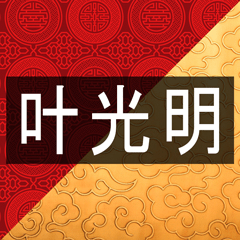
 China’s New Internet Campaign
China’s New Internet Campaign
China's Cyberspace Administration in September launched a two-month campaign against what is perceived as pessimism and negativism in social media and on the internet in general. The plan aims to curb social media posts that "excessively exaggerate negative and pessimistic sentiments”, to "rectify negative emotions" and "create a more civilised and rational online environment”. Specifically comments on Chinese social media like “studying is useless" (because jobs for graduates are so hard to find) or "hard work is useless” (because costs of buying a house and the general cost of living have increased) are to be forbidden - and removed if they are posted.
The background to all of this is that China has battled with an economic slowdown post-Covid as well as a property crisis, leading to high youth unemployment and stiff competition for jobs - all of which have given rise to a sense of disillusionment among some of its younger generation. Previously in this column we have mentioned the “lie flat” movement (a term prominent since 2021 describing the pursuit of a simple, stress-free life) and the “full-time children” movement (where jobless young people returned home to work for their parents for a small income). Now there is a new trend - the emergence of “rat people” on the internet, “where Chinese youths embrace a rodent-like lifestyle, which includes burrowing in bed and ordering delivery meals to avoid going outside.”
This new internet campaign is aimed at removing those who express these pessimistic trends on social media, live-streaming and short-video platforms. Content is to be targeted if it “maliciously misinterprets social phenomena, selectively exaggerates negative cases, and uses them as an opportunity to promote nihilistic or otherwise negative worldviews.”
“The internet regulator has also recently penalised internet platforms for failing to moderate content posted on their sites. Popular social media platform Weibo, the TikTok-like Kuaishou, and the Chinese equivalent of Instagram, Red, or Xiaohongshu, were all disciplined recently for allowing ‘harmful’ information like ‘hyping around personal updates of celebrities and trivial matters’ to appear in trending topics. The crackdown also covers content ‘inciting extreme confrontation between groups,’ ‘spreading fear and anxiety,’ and ‘fuelling online violence and hostility.’”
The regulator also “urged the public to actively report such cases in order to ‘resist the malicious incitement of negative sentiment.’” “The harm of such maliciously divisive content is significant. It can trigger collective misunderstandings and social panic, marginalise reason and facts, and even spark offline conflicts, causing long-term damage to public order and social trust.”
Such a campaign is unlikely to bring change and is more likely simply to drive those with negative views “underground”. Simon Sihang Luo, an assistant professor of social sciences at Singapore's Nanyang Technological University, explained to the BBC that “young people in China have serious questions about future prospects of their lives and must confront the fact that their livelihood is very likely going to be worse than their parents' generation.”
Other China experts commented that “while the crackdown could well change the tone online, the general sentiment is less likely to change without better life and career prospects, and that China’s internet users would, as they have done in the past, find ways to express themselves online. The state will try to clamp down on these new terms and expressions as they emerge, but they will simply continue to evolve.” “Being deprived of relief after venting these sentiments might make it even worse for their collective mental status. If anything, contemporary Chinese history has repeatedly demonstrated that top-down ideological campaigns can hardly eradicate the social roots of problems.”
Pray for solutions to the job shortage and the economic downturn that lie behind these internet trends.
Pray that “pessimism and negativism” would lead to many seeking for positive answers in the Lord Jesus.
Pray that Christian websites would not be unjustly caught up in this campaign.

